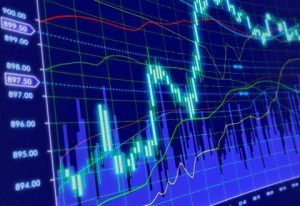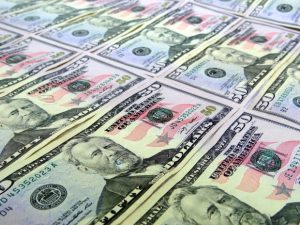In my article What is Stagflation, I wrote: The simple definition of Stagflation is a “stagnant economy coupled with price inflation”. Thus the term Stagflation… it has nothing to do with Deer. In other words, in stagflation prices are going up while the economy is going down. The word was coined during the inflationary period of the 1970’s. In the following article Frank Shostak goes into more depth on stagflation. ~ Tim McMahon, editor What is Stagflation? The occurrence of stagflation is associated with a situation of general strengthening in the momentum of prices while at the same time the pace of economic activity is declining. A famous stagflation episode occurred during the … [Read more...]
Inflationary Expectations Do Not Cause Inflation
Many economists believe that inflationary expectations cause general increases in prices. For instance, if there is a sharp increase in oil prices, people will form higher inflationary expectations that set in motion general increases in the prices of other goods and services. According to the former Federal Reserve chairman Ben Bernanke, “Undoubtedly, the state of inflation expectations greatly influences actual inflation and thus the central bank’s ability to achieve price stability.” Economists believe that if expectations could be made less responsive to various shocks, then over time this would mitigate the effects of these shocks on the momentum of the prices of goods and services. … [Read more...]
Is There an Optimum Growth Rate of Money?
It is widely held that a growing economy requires a growing money stock because economic growth increases demand for money. Many economists also believe that failing to accommodate the increase in the demand for money leads to a decline in consumer prices. This could destabilize the economy and produce an economic recession or even a depression. Some economists who follow Milton Friedman—also known as monetarists—want the central bank to target the money supply growth rate to a fixed percentage. They hold that if this percentage is maintained over a prolonged period, it will create economic stability. The idea that money must grow to support economic growth implies that money sustains … [Read more...]
How Loose Monetary Policies Cause Recessions
Advocates of Keynesian economics believe the Federal Reserve should pursue policies that will prevent the possible decline of the economy into a liquidity trap. But what is a liquidity trap? Economic activity often is presented in terms of a circular flow of money. Spending by one individual becomes part of the earnings of another individual, and spending by another individual becomes part of the first individual’s earnings. Recessions, by this thinking, occur because consumers—for whatever reason—have decided to cut spending and increase their savings. For instance, if people become less confident about the future, they are likely going to lower their outlays and hoard money. … [Read more...]





